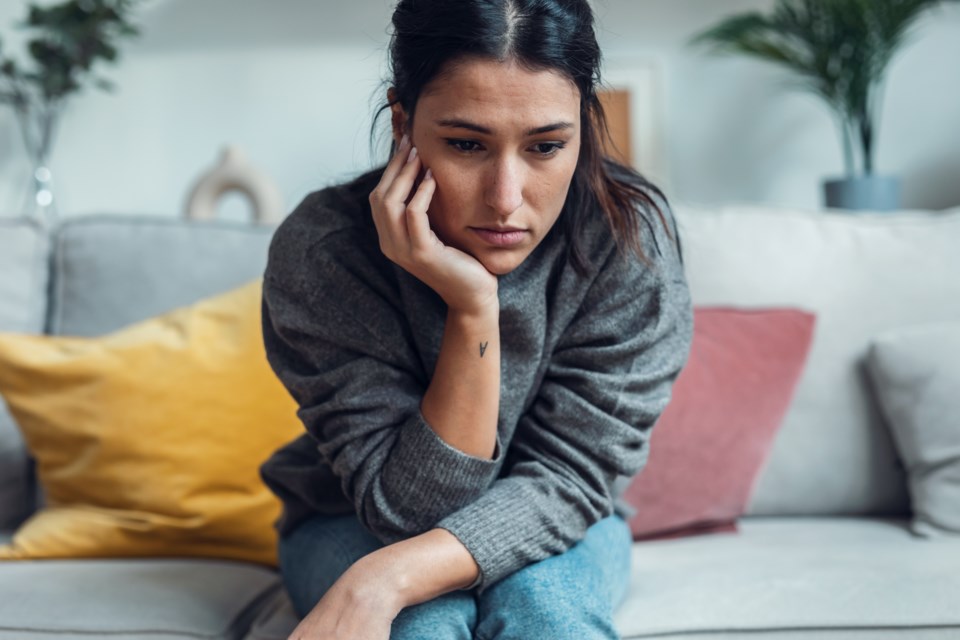The recent surge in cases of intimate partner violence (IPV) in Ontario has raised alarming concerns and prompted calls for action. Since November 2022, 30 women have tragically lost their lives at the hands of their intimate partners or individuals known to them. Shockingly, five of these incidents occurred in the month of June alone, emphasizing the urgency of addressing this issue.
The Community Counselling Centre of Nipissing (CCCN) has witnessed a concerning trend, with the Partner Assault Response program experiencing an increase of double the clients, while the violence against women program has seen a 23 per cent increase in women seeking help. These figures indicate a growing need for support and intervention to protect vulnerable individuals and prevent further harm.
The Nipissing Violence Against Women Coordinating Committee (VAWCC) plans to present a request to municipal councils this summer, urging them to declare intimate partner violence an epidemic. This call for action is a response to the Renfrew County Inquest held in June 2022, which shed light on the gravity of IPV and its devastating consequences.
Despite being preventable, IPV remains prevalent in Canada, with over one-third of women experiencing it in their lifetime. Locally, the situation is dire. Victim Services of Nipissing District (VSND) received 475 calls for service related to IPV last year, while the North Bay Police Service responded to approximately 1,200 domestic-related calls. As well, Amelia Rising, Community Counselling Centre of Nipissing, Nipissing Transition House and Mattawa Women’s Resource Centre provided counseling support and services to over 900 survivors of gender-based violence in 2022.
The impact of IPV extends beyond individual victims, affecting the entire community. Chair of VAWCC Justine Mallah emphasizes, "While IPV is often hidden behind closed doors, the consequences are devastating and costly, ultimately affecting every member of society." She adds, ““IPV contributes to an unsafe community, an increase in homelessness, decreased police and ambulance capacity, additional needs for social housing, and added pressures on the healthcare system, the judicial system, and social services.”
A particularly distressing statistic reveals that 13.1 per cent of Children's Aid Society Nipissing & Parry Sound's total call volume in 2022 was related to a child's exposure to domestic violence.
“This is extremely concerning,” says Executive Director of VSND, Kathleen Jodouin, after hearing the statistic. “Children exposed to IPV often experience harmful outcomes, such as chronic health conditions, mental health challenges, and an increased likelihood of entering the juvenile system. They are also significantly more likely to be in a violent intimate relationship as victim or perpetrator.”
While the data offers insight into the prevalence of IPV in the community, these figures likely represent only a fraction of the actual violence taking place. The VAWCC plans to present their findings and recommendations to East Ferris Council on July 11 and to Mattawan Council on July 13, hoping that local municipal councils will take proactive measures to include IPV in their community safety and well-being plans.
The inquest that sparked these discussions was prompted by the tragic deaths of three women—Carol Culleton, Anastasia Kuzyk and Nathalie Warmerdam—who were all killed by their former intimate partner in 2015. The jury's 86 recommendations included a crucial first step: the formal declaration of IPV as an epidemic by the Government of Ontario.
This recommendation aligns with the 2023 report issued by the Mass Casualty Commission following the Nova Scotia mass shooting inquiry. As a result, over 35 municipalities across the province have already declared IPV an epidemic, including the Town of Mattawa. The VAWCC, comprised of various organizations working collaboratively to end intimate partner violence and support victims, is advocating for a united effort to combat this pressing issue.
Clearly intimate partner violence poses a significant threat to individuals, families and communities at large. By recognizing it as an epidemic, implementing prevention strategies, enhancing support services and prioritizing the well-being of survivors and their children, we can begin to address this crisis and work towards a future free from the horrors of intimate partner violence.
If you are experiencing IPV and need support, please contact CCCN at 705-472-6515 or email: [email protected].
For emergency and after-hours services, please call 911 or the Nipissing Transition House support line at 705-476-2429.
